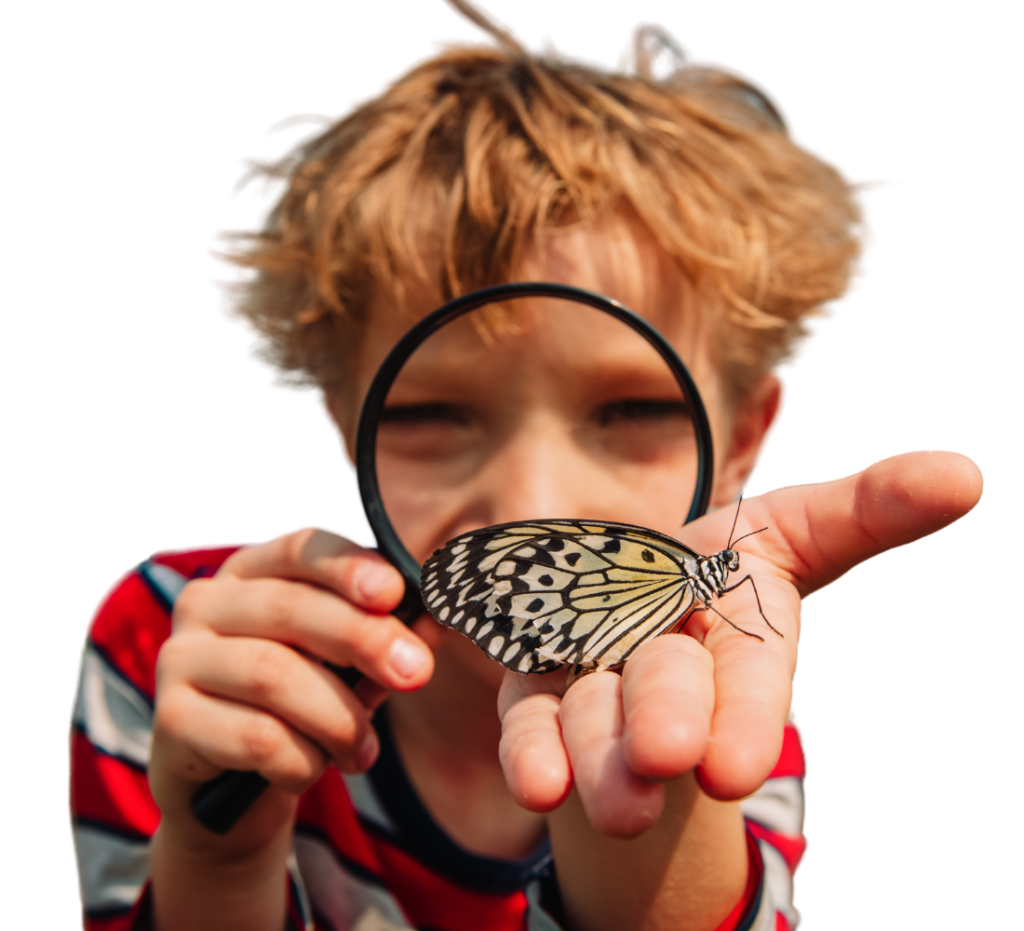
Grade 1 and 2
Our education method cultivates creative, critical, and analytical thinking in a non-linear, emergent cognitive manner.
Program
Our 1:8 ratio grade 1 and 2 programs are for families who would like their child to continue enriched in-person learning in a small group setting.
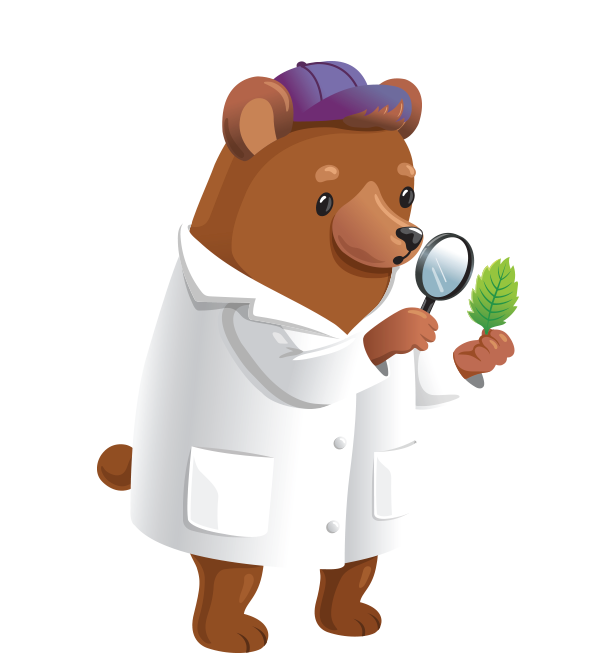
At Ridley Orchard School we recognize children as competent, capable, curious, and rich in potential. We are committed to quality education and enrichment for the primary years. We take a balanced approach to learning and believe children enjoy supportive learning challenges at a level appropriate to them. The inquiry and project-based approach supports intellectual risk-taking and curiosity that develops multi-dimensional and out-of-the-box thinking. Children master, retain, and apply their discoveries and learning.
After gaining confidence and skill in Early Start through SK programs, our Grade 1 and 2 students hit the ground running. If your child is a new student to Ridley Orchard School, the first month is dedicated to review for all students and there is plenty of time for the educators to determine how best to help your child integrate academically and socially with their new classmates. Many students join Ridley Orchard School at this time to great benefit and Ridley Orchard School educators are there to ensure that your child’s transition is smooth and comfortable.
Students in Grades 1-2 continue to build their language skills with our “Preparation Plus” Reading, Writing and Phonics Program. If your child is new to Ridley Orchard School and has had limited exposure to phonics, educators work with them individually and in small groups where creative and persuasive writing are highlighted as the child develops. Media and journalism units help stimulate enquiry. Proper grammar and spelling are always reinforced. ‘Spell Smart” (our name for spelling tests) are given once a week.
Math instruction intensifies as problems become more complex. Teachers draw from Nelson Mathematics, Math Makes Sense and Teaching Student Centred Mathematics by John Van de Walle, among others. Methods for teaching math vary widely from school to school and it is a subject of great debate in the educational community. ‘New’ Math (a multi-strategy, collaborative, language-based approach to math) can be confusing for parents as most of us learned largely by rote. At Ridley Orchard School, children get the best of both worlds – they get the support they need to create and share the math strategies that work best for them as well as concurrent instruction in basic fact mastery – learning their doubles facts, multiplication tables etc.
Studies also deepen in Science, Technology, Engineering, and Nature including mandatory participation in the Science Fair. French and Spanish continues to be taught weekly. Sport skills, yoga and dance continue in our gym and “Field Fridays’ is added to accommodate trips off site to play soccer, baseball and outdoor adventures and education. Students make use of the Earl Bales Park Centre, and if the winter is snowy, the children even have a chance to toboggan, ski and snowboard. A choral class is added in Grade 1, bringing music instruction to two days per week. Visual Arts is once a week, students have fun creating unique, personal works and learning about art history.

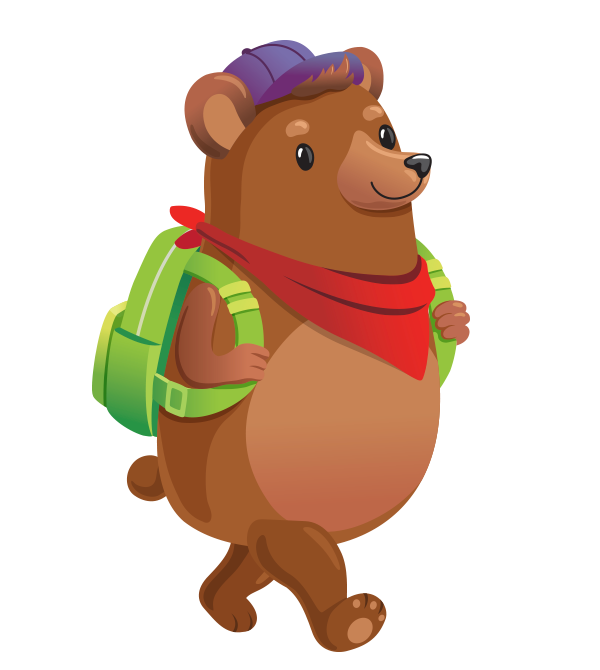
A Typical Day
A typical day at Ridley Orchard School for Grades 1-2 begins at 8:30 (drop off is any time after 8:00) and ends at 2:30. Reading, writing, math, and science blocks are taught in the morning and the afternoon is generally reserved for specialty classes of French, art, music, drama, sports, and athletics. Before and after school care is available from 7:30am to 6:30pm.
Even though the children are maturing, we do not expect them to sit for more than 30 minutes at a time to complete desk work. Students have plenty of outdoor exercise at lunch and recess. Yummy catered snacks and hot lunch are included in your Ridley Orchard School tuition and provides the fuel they need to stay focussed throughout the day.
The Program
Customized educational plans reflect on each student’s aptitude, learning style, and interests and are developed through ongoing assessment and observation to ensure all building blocks are in place and being met. Children learn collaboratively, and independently, developing strong emotional and academic intelligence, self-reliance, and self-esteem while establishing time management and clear communication skills.
Records of what children are researching, investigating, and learning throughout the curriculum is documented. This supports reflection, questioning, and discussion on specific learning topics and demonstrates student’s developmental growth over time and maintains academic accountability.
In small class sizes and through a series of programs, we teach Reading, Writing, Language Arts Mathematics, Coding, STEM Science and Nature. Social Studies and Community Connections, Project Presentation, Creative Visual Arts, Music and Movement, Dramatic Arts, Sports and Athletics and much more… Ridley Orchard School is licensed by the Ministry of Education.
Ontario Certified Teachers (OCT) and Registered Early Childhood Educators (RECE) that have degrees in education and various other related disciplines prepare Individual Education Plans tailored to children’s aptitude, needs and interests. Learning environments embrace observation, documentation, scaffolding, project approach, research, investigation, and reflection. Educators are nurturing, fun-loving and supportive, while being incredibly serious about supporting their student’s success. Educators participate in on-going Professional Development to stay current and advance their training and education. All Ridley Orchard School employees have Vulnerable Sector Police Checks, First Aid and CPR certification. The school director’s hands-on and on-site approach ensures the student is central in the school, supported to develop and learn to their potential.

Curriculum
Reading and Writing
Daily guided, independent, and group reading time build the foundations of solid reading comprehension. Students learn to alternate between sight and sounding out reading strategies. They identify word meanings and pronunciation, alone and in sentences. Students explore storytelling as an art form using various reading materials and genres. They respond to familiar and predictable language patterns by joining in or using vocal response, extending their vocabulary, and developing reading skills. Students discover fascinating things that interest them and their peers. From word sounds to sentence structures, students understand how our language works and how it relates to the world. Building on comprehension, children learn to analyze and access texts in increasing complexity.
Preparation Plus Reading, Writing and Letterland Phonics/Grammar Program begin with letter and word sounds, followed up with practice sheets and games for reading and spelling. The Grammar program is an extension of the Phonics program. This program teaches a wide variety of language forms including the parts of speech, plurals, punctuation, and the tenses past, present and future. It also teaches various spelling rules, including defining aspects such as short vowels. Building upon the Letterland lessons, programs provide advanced learning in the world of grammar. Children will complete practice sheets at school before taking them home. We encourage you to review these sheets with your child throughout the year.
The Language Arts Program includes:
- Listening and speaking phonic skills
- Whole word recognition
- Creative writing
- Sight vocabulary by recognizing recurring letter/sound patterns
- Word formation, CVC words, blended sounds
- Consonant blends, word endings, long and short vowels, digraphs and trigraphs.
- Class made sight word wall and dictionary
- Sentence recognition and composition
- Punctuation and grammar
- Journal writing, book making
- Reading for meaning
- French and Spanish classes
The Learning Without Tears Writing Program activities exercise manual dexterity making handwriting an automatic natural skill. Expanding word recognition to word formation, developing good letter formation, legibility, and sentence spacing. Learning to clarify thoughts before writing down words, setting goals for paragraphs, sticking to them, and remembering important information is all necessary for writing. Students in each grade learn to use standard written forms and language to communicate clearly and effectively. In weekly discussions on reading, speech, writing workshops, journaling, and home-related projects, students receive the tools they need to produce successfully communicated original writing, reflecting their ability to think and express themselves independently and critically. Handwriting becomes an automatic and natural skill for children of all ability levels. Children that learn to write well, with ease and confidence, enjoy school more and feel pride in their work.
Mathematics
Math instruction intensifies as numerical problems become more complex. Educators apply methods from Nelson Mathematics, Math Makes Sense and Teaching Student-Centered Mathematics among others. Students are challenged to explore and explain the world through a mathematical perspective. Collaborative learning strategies are encouraged, and fact mastery supported. Mathematical methods include games, activities and materials that provide a foundation for understanding mathematical concepts. We incorporate math into the daily routine, as well as into other school related activities. For example: attendance, calendar, weather, number line, time, age, address, phone numbers, cooking, and understanding of numerals and their relation to real life situations by applying them to role playing scenarios; formal addition and subtraction, concrete problem solving, monetary quantity, measuring, weighing, volume, mass, geometry, patterns, graph, and table making, temperature and relative time symmetry.
Classification – This is a sorting operation requiring the ability to create groups of objects based on the identification of common characteristics. These characteristics include such features as colour, shape, size, and thickness. The child must recognize similarities and differences in objects to classify them.
Serialization – This is an ordering operation requiring the ability to create logical sequence for a set of objects. Graduated sequence calls for the ability to order according to size and quantity. Repetitive sequence is mastered when the child can place things in order according to pattern.
Spatial Sense – This is the ability to recognize the relationships of “self-to-space” and “object-to-space”.
Practice estimation and probability and are supported to describe reasoning when solving number problems. Student’s will delve into the beginning stages of multiplication, division and fractions using tangible materials and projects.
Coding is a new language welcoming us to participate in new communities. Children express themselves by designing applications, websites, and other access points into the digital world. Learning a new language and coding have much in common. Though coding itself may be relatively new as a subject at such a young age, language is not. This self-expression works similarly to reading and writing any language spoken in the world today. ROS combines both unplugged coding and technology-based coding establishing a set of instructions for computer programing.
Science, Nature, STEM
Students at Ridley Orchard School develop nature-based, and STEM (science, technology, engineering, and mathematics) learning and challenges each week that allow them to participate and play an active role in advancing STEM and nature fields of study. They explore, experiment, and discover using a variety of materials. Students develop process skills, they establish cause and effect, make observations about results from experimenting with materials and problem solve by answering – what, where, when, how, and why. Students extend and apply prior knowledge to solve the problem at hand, developing concrete learning into abstract critical thinking. They progress to documenting their experiments and findings by drawing, writing, and reading. Students will research, collect materials and information, develop, conduct, present, draw and write their own Science Fair experiments. Lessons are supplemented with educational guest speakers and field trips to maximize student involvement and understanding. Students are taught about the uses of various technological devices as they relate to them in the real world. Primary school students explore and use computers, and iPads to enhance their learning and how to be an ethical user.
Social Studies
By understanding the history of our diverse community, we are better able to develop within it. The concepts explored provide students with a means to develop their ability to reflect and adapt to an ever-changing world. Students learn to investigate and communicate their findings, analyze important events, and assess the strength of discussions within their creative investigation. With a focus on fostering critical thinking skills and research practices, ROS supports student’s capacity for resolution and strengthens communication skills to help them achieve their goals. Learning how to make resources, such as maps and graphs, allows students to understand the people, places, and things they will be studying in their research. Visual data and information are an essential part of our Social Studies lessons as they contribute to both theoretical and practical comprehension from the student. Each year, students learn what it means to be a responsible and active citizen of our school community and the various communities they belong to outside of school. Within the Social Studies program, students learn the how and why they are part of many communities and that they are members of both individual communities and, more significantly, a global society. Lessons are supplemented with educational guest speakers and field trips to maximize student involvement and understanding.
Social Learning
Social skills are an important area of development for children. At ROS, we incorporate the development of these skills on an ongoing basis both during instructional time and at play. Social skills programs integrate elements of social development programs such as the Zones of Regulation, The Incredible Flexible, You and the Incredible Five Point Scale. Our social skills programs also incorporate character development goals to facilitate lasting friendships and a strong community of learners. Educators work with students to further identify their personal learning styles and strategies. They are taught efficient ways to plan, to organize, as well as ways to develop and maintain study skills. Additionally, they attend workshops presented by “Now You’re Talking”, which enhance their skills in communication and presentation. In the leadership program students participate in the lunch, reading, and mentoring programs of our younger students. They lead morning announcements, school assemblies and other school-wide initiatives.
Community Connection
Children’s natural curiosity and exuberance towards their community supports their feelings of belonging, form meaningful relationships with others, contribute and be part of a group. Community teaches us that participation is valued and appreciated. Ridley Orchard School supports the significance of that harmony. Working with the family, extended family, friends, neighbours, and local organizations, students experience the reality of a strong growing community in a way that empowers them to not only participate but take up the leadership role in leading us all to a better tomorrow.
Project Presentation
Through presentations and speeches, students learn to effectively orate Infront of a group and verbally communicate their thoughts and ideas on various topics and learn from each other about the world around them. While students present their projects, share their thoughts and ideas about what they are learning, they ultimately strengthen their receptive and expressive language skills. By responding to their peer’s questions and comments, students practice collaboration and further develop and apply their abstract and critical thinking.
The Arts
At Ridley Orchard School we believe that it is important to foster a positive approach to the arts, and what better place to do that than right here at school. Children enjoy the creative process just as much, if not more, than the results that they achieve. In doing so, their senses are sharpened, and they respond to this heightened awareness with an abundance of ideas.
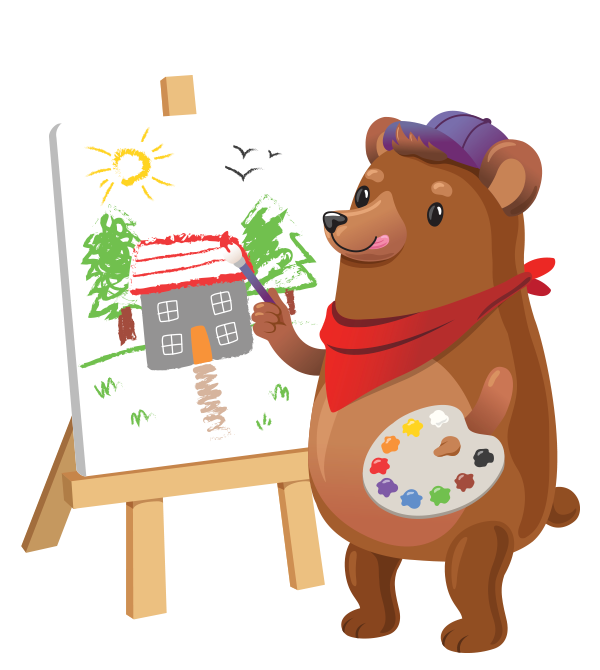
Visual Arts
Students at ROS are given the opportunity to explore and create with a variety of artistic mediums. Students develop their creativity, spatial awareness and fine motor skills through drawing, painting, collage, sculpting and mixed media. Our visual arts activities often correspond to curriculum areas to help students broaden their understanding of the material and appeal to visual and hands-on learners. Students create using various media and techniques, experimenting with colour, line, shape, form, texture, and space. They acquire a sense of invention, completion, and accomplishment. Creative projects allow children to mix information with imagination and self-expression, create confidence, and inspire others. Students experiment with varied techniques and materials and demonstrate an understanding of their use while developing focus and concentration skills. They practice tasks requiring eye hand co-ordination, precision and perceptual skills and develop fine motor muscles strength. Visual Art challenges a child’s imagination with the endless possibilities it brings.
Music
Music is an important part of life at Ridley Orchard School. The 4 stages utilized to organize the process of teaching a Music and Movement program are imitation, exploration, improvisation, and composition and establish the building blocks for children to develop musical literacy. Our specialized music educator provides an enriched Orff musical experience for the children. He draws on music from around the world and uses a wide variety of instruments such as guitar, bells, chime bars, maracas, glockenspiels, xylophones, drums, triangles, cymbals, tambourines, castanets. He teaches new songs to the children, many of them with lots of actions. Children and staff alike look forward to his visits to the school. Of course, music is present at ROS on all days. Our educators and students sing songs and incorporate instruments such as shapers, ankle bells, drums, scarves, and other unique items into their musical arrangements.
Dramatic Arts
Involvement in dramatic activities is a way of bringing out what is inside. Drama encompasses many forms of creative expressions and deals with the process of acting out, or the playing of a role, in an imaginary situation. Drama is integrated into a variety of subject areas to enhance student learning, enhance presentation skills, and spark creativity and self-expression.
French and Spanish
All the children at ROS take part in our French and Spanish programs once a week. French and Spanish is taught conversationally with a written component included for Grades 1 and 2.
Physical Education Sports and Athletics
All programs include physical education in addition to outdoor and gross motor development. Movement is a fundamental part of a child’s development, and physical literacy is a part of their daily schedule. Students learn specific skills such as ball handling, eye-hand coordination, building resilience, with a commitment to sportsmanship, team building, nutrition, and healthy living. Yoga especially is an excellent and universal method to self-regulate and ready children’s brains and bodies for learning. Specialized coaches lead classes in developing gross motor and athletic skills in a fun, supportive and non-competitive environment. Students learn soccer, basketball, volleyball, hockey, baseball, tennis, gymnastics and more. Team games and activities promote cooperation while having tons of fun. Community visits to the local park for field games further enhance the students’ physical education experiences. These activities create a unique opportunity where character growth is challenged in a way that has children eager to participate.
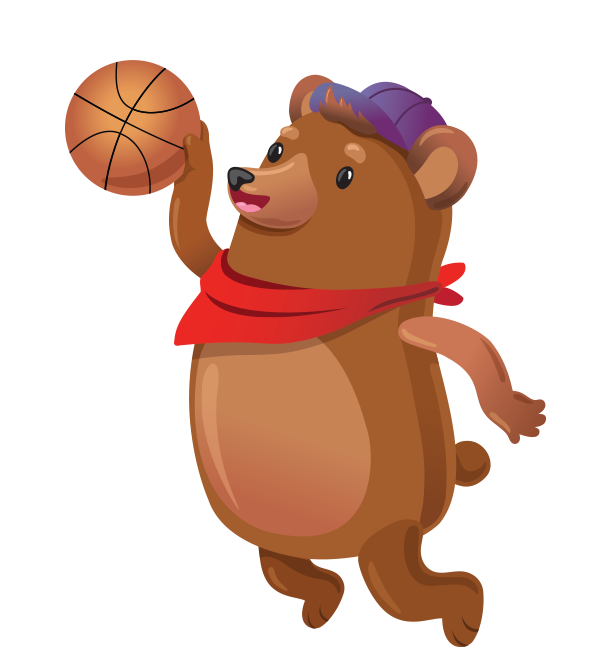
What comes after Ridley Orchard School?
There are many schools to choose from in the private system in Toronto. Entry years vary widely for boys and girls, and it can be tricky for parents to determine when it is the ‘right’ time to move on to public school or to another private school. Our Director of Admission is always there to help parents through this process. Ridley Orchard School has excellent reciprocal relationships with the larger private schools. Our biennial event brings Directors of Admission from all the top schools in Toronto out to talk to Ridley Orchard School’s parents to share with them what their schools have to offer.
For parents unfamiliar with the private system, this is a great introduction to a potentially daunting task. Ridley Orchard School students are highly regarded applicants, known for their academic skill, confidence, and character. Children typically gain entry into the schools of their choice, arriving well-equipped to manage the routines and demands of their new environments. If you choose to transition into the public system we recommend a Grade 3 entry, when public school students move from the Primary to the Junior level.
Public and private school environments are very different, and each comes with its own set of challenges and benefits. Many of our families transition into public schools and are very happy with the results for their child and their family.
Sign up Today
Ready to get started? Ask us for a tour of our facilities and ask any questions you might have.
